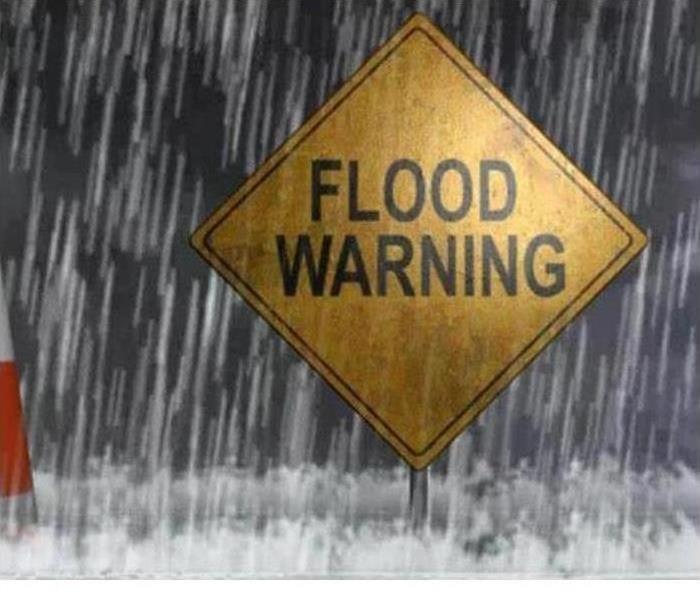What to do in a Flood
9/21/2019 (Permalink)
Floods are one of the most common and widespread natural disasters in the United States, causing more damage than any other weather-related disaster. The location of your home or business has little to do with your risk factor for flooding. Just because you haven’t experienced a flood in the past, doesn’t mean you won’t in the future. According to the National Flood Insurance Program (NFIP), 20% of all claims were for policies in low-risk communities. Floods cost an average of $3 billion in annual losses with the average Commercial claims being $75,000,000.
The American Red Cross (ARC) offers the following flood safety tips:
Stay away from flood waters. If you come up on a flowing stream where the water is above your ankles, stop, turn around and go another way. Six inches of swiftly moving water can sweep you off of your feet.
Do not try to drive on a flooded road. If you approach a roadway that is flooded, turn around and go another way. If you are caught on a flooded road and the water is rising rapidly, get out of the car and get to higher ground. Most cars can be swept away by less than two of moving water.
Keep children out of the water. Children are curious and lack judgment about running water and contaminated water.
That’s pretty basic…so here are some less well known tips to keep you safer in a flood!
- If you have time, secure your home. Bring in outdoor furniture. Move essential items to an upper floor.
- Do not walk through moving water.Use a stick to check the firmness of the ground in front of you.
- Turn off utilities at the main switches or valves if instructed to do so. Disconnect electrical appliances. Do not touch electrical equipment if you are wet or standing in water.
- Six inches of water will reach the bottom of most passenger cars causing loss of control and possible stalling.
- A foot of water will float many vehicles.
After a Flood
- Listen for news reports to learn whether the community’s water supply is safe to drink.
- Be aware of areas where floodwaters have receded. Roads may have weakened and could collapse under the weight of a car.
- Clean and disinfect everything that got wet. Mud left from floodwater can contain sewage and chemicals. Call SERVPRO of Union, Towns, Fannin & Gilmer Counties to help with cleanup, we have the equipment and expertise to restore your home to it's former glory.






 24/7 Emergency Service
24/7 Emergency Service
